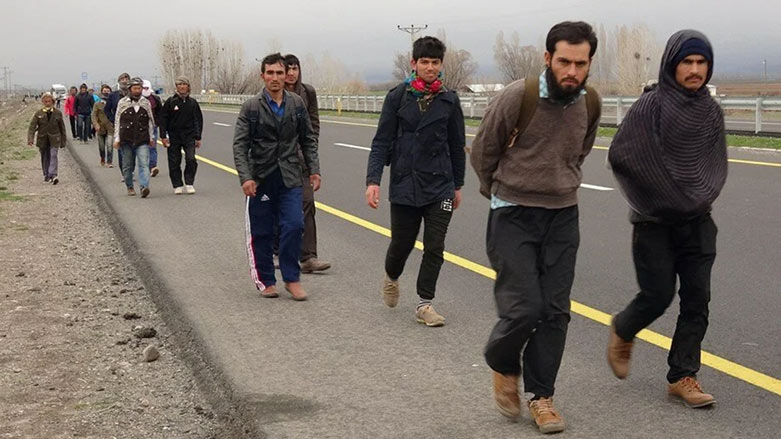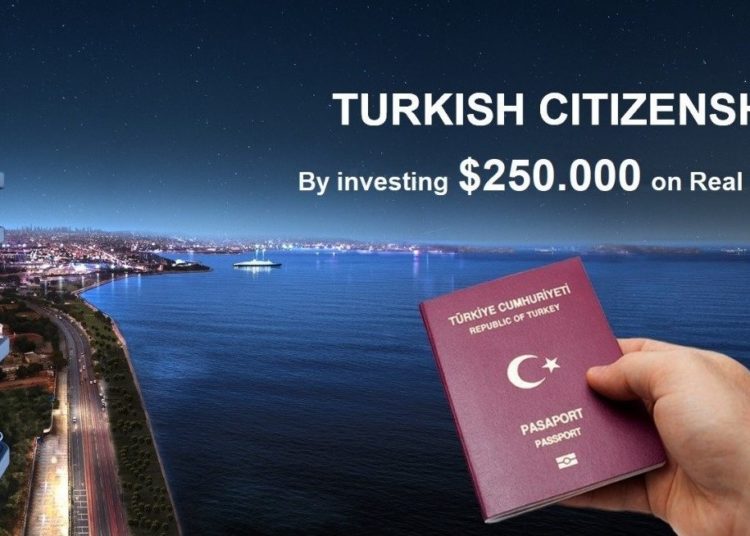Levent Kenez/Stockholm
While Turkey looks for ways to prevent a new flood of Afghan refugees fleeing the Taliban, the opportunities offered by the Turkish government to middle and upper-income immigrants have made Turkey a permanent home, especially for people from the Middle East. A Nordic Monitor study shows that Afghans are now buying more and more homes in order to acquire citizenship or residence permits.
In 2017 Turkey kicked off a real estate campaign to encourage the sale of housing to foreigners to meet its foreign exchange needs. In addition to that, it was also announced that a residence permit for one year would be granted to foreigners who buy a house in Turkey, regardless of price. Turkish citizenship was promised to foreigners who bought real estate priced at $1 million. In 2019 this limit was reduced to $250,000, leading to an increase in housing sales.
In 2019 and 2020, according to official statistics, 7,500 foreigners acquired citizenship by purchasing real estate in Turkey. In the first six months of 2021 alone, 10,000 people obtained the right to acquire citizenship. The top 10 countries whose nationals have become Turkish citizens are Iran, Afghanistan, Iraq, Yemen, China, Palestine, Jordan, Lebanon, Egypt and Pakistan.
According to statistics from the General Directorate of Migration Management, more Afghans than any other foreign nationals are being apprehended for crossing the Turkish border illegally. Experts estimate that the Afghan population in Turkey numbers at least 500,000 at the moment.
Afghans generally prefer to buy low-priced homes and apartments in order to obtain residence permits. According to Turkish Statistical Institute (TUIK) data, Afghans have started buying more houses in the last five years.
Afghans, who bought 806 houses in Turkey in the first six months of 2020, bought 1,272 houses in the same period of 2021. Their purchases have increased by 60 percent during the pandemic, despite a dramatic drop in home sales countrywide.
Wealthy Afghans seeking a safe haven for themselves and their families started buying houses in Turkey in 2014. Businessmen and civil servants in particular who got rich from the foreign assistance that entered Afghanistan bought houses in Turkey. With the reduction of the limit to acquire citizenship to $250,000, it is believed that more wealthy Afghans will buy houses in Turkey now that the Taliban has taken over control of Afghanistan.

The vast majority of Afghans who work informally under difficult conditions in Turkey try to obtain legal residence by buying houses in shantytowns with the money they save and use it as a way to bring their families to Turkey.
Turkey traditionally does not grant immigrant status to refugees. No matter how long they stay or work in Turkey, very few can become citizens and only their residence permits are extended.
According to UN data, Turkey hosts the largest number of refugees worldwide. The country is currently home to some 3.6 million registered Syrian refugees along with close to 320,000 persons of concern from other nationalities. The unofficial figure is estimated to be more than that.

With the deterioration of the Turkish economy, Turks have developed an animosity towards refugees. While opposition parties criticize the government’s unsuccessful refugee policy, they often target refugees as well. Refugees often become objects of hate in political discussions and debates in the media.
EU policies regarding the acceptance of refugees as well as Turkey’s geographic situation have had a great impact on Turkey becoming a refugee country. EU leaders have been harshly criticized by human rights defenders who claim that they are turning a blind eye to human rights violations in exchange for Turkey’s efforts to keep refugees in its territory. Turkish President Recep Tayyip Erdoğan’s government prevents refugees from entering Europe in exchange for money from the EU, and from time to time Erdoğan creates artificial crises to increase his bargaining power.
French President Emmanuel Macron recently said France and its European partners will work on a robust, coordinated and united response to any new influx of migrants from Afghanistan, suggesting an effort at solidarity and cooperation with transit countries including Turkey. Many people on social media criticized Macron for proposing to use transit countries against refugees by giving them money, thus relieving the EU of any responsibility. Macron’s approach makes authoritarian leaders like Erdoğan stronger at home and abroad, which has been proven to be the case many times in the past.












